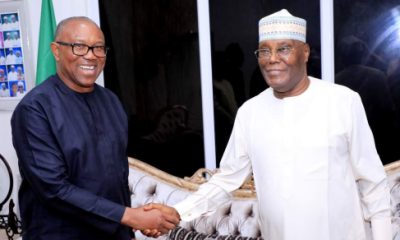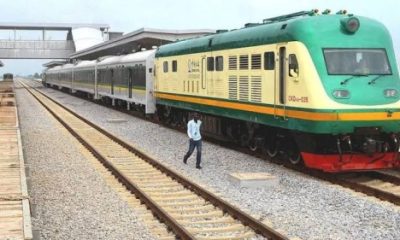News
Nigerians To Pay More For Electricity As New Tariff Kicks Off July 1
Nigerians may need to brace up for tougher times as electricity tariff is set to increase by over 40 per cent in the coming days, a development which may eventually end all forms of energy subsidy in the country.
Guardian reports that with a monthly subsidy of about N50 billion still in the electricity sector owing to revenue shortfall, the tariff hike due from July 1, may be another acid test for the President Bola Ahmed Tinubu administration’s market reform.
The administration has already removed subsidies on Premium Motor Spirit (PMS) and floated the naira, decisions that have complicated the price-setting of the Nigerian Electricity Regulatory Commission (NERC) 2022 Multi-Year Tariff Order (MYTO).
Although the power sector players have been unable to meet the threshold of supplying at least 5,000 megawatts a year after signing contracts with NERC, NERC’s current Service Based Tariff (SBT) was benchmarked on an exchange rate of N441/$ and inflation of 16.97 per cent.
Going by the NERC’s orders, in 2015, the average tariff across distribution companies (DisCos) and classes of end-users was N25 kilowatt, in order of 198/2020, which came into effect on September 1, 2020. The average tariff went to N60 per kilowatt; in the MYTO for 2022, the average tariff was N64 across classes of customers.
The foreign exchange rate used in determining the 2015 tariff was N198.97/$, N383.80/$ was used in 2020, while N441.78/$ was used in 2022. The inflation used in the 2015 MYTO was 8.3 per cent, 12 per cent was used in 2020 and 16.97 per cent in 2022.
Currently, the inflation rate is 22.41 per cent and some experts have projected that it would hit 30 per cent by the end of June given the floating of the naira and subsidy removal on PMS.
Coming as the metering gap remained at over seven million, gas prices, losses and actual generation capacity are other elements in determining the tariff.
While NERC’s projected tariff for July 2023 was expected to remove subsidy and increase the previously frozen tariff band D and E, increasing the bands from N54.59/kilowatt to N62.16 for band D and N48.37/kilowatt to N61.16 on average with an average increase across the bands moving to N67/kilowatt, the prevailing floating of the naira and spike in inflation is projected to move the new average tariff to about N88/kilowatt for the sector to recover the cost.
Most electricity stakeholders say that while the increase is unavoidable due to the changes in the parameters, households and small businesses, which should power the economy, may head for serious problems with energy costs alone rising to over 70 per cent as purchasing power remains a challenge in the face of unemployment and poverty.
Available electricity on the grid stood at 3,057.7MW from 17 power plants. The average load intake of all the DisCos in the last four months averaged 3,000MW, a development that follows the persistent push to make the DisCos meet up with 100 per cent of their remittance orders.
With the question of affordability emerging as a major consideration as the grid remains unreliable, forcing it to make losses, stakeholders have expressed fear that Nigerian Electricity Supply Market may face tougher times managing outlook due to apathy that may come from consumers who are losing hope in the system and resorting to alternative energy.
Energy expert, Prof Wunmi Iledare, said the restructuring of the forex market creates worries as it appears as a devaluation of the naira, adding that he’s not comfortable blaming subsidy removal and paying the right tariff for decoupling Nigeria’s economy from forex instability.
According to him, people must support the government in its effort to stop the dollarisation of its economy even if electricity tariff and petroleum products prices rise to a not-too-comfortable market-clearing price.
Iledare, however, questioned the current energy pricing in the country, adding that the PMS pricing which stayed after the NNPC announcement is anticompetitive based on the dominant firm market structure.
“Price hike cannot just depend on forex in the electricity market. Market fundamentals are key to rate determination in a decreasing cost industry producing essential commodities, like power,” Iledare noted.
Energy lawyer, Madaki Ameh, said the never-ending upward reviews of power tariffs have become some sort of blackmail on electricity consumers and should be addressed through the Consumer Protection Council or an organized body of electricity consumers.
“Indexing the cost of electricity on the dollar is a huge mistake because most of the inputs for electricity supply are local. The DisCos are also holding Nigerians to ransom by failing to increase the supply base, thereby spreading the tariffs across a broader spectrum of consumers to reduce the unit cost of electricity,” Ameh said
He insisted that as long as there remain many unmetered consumers and many others not connected to the grid at all, the few consumers on the grid would continue to be subjected to unjust tariffs, which are not reflective of the quality of service delivered.
Ameh hoped that the signing into law of the new Electricity Act would mark “the beginning of light at the end of the long tunnel of inefficient and epileptic power supply in Nigeria.”
President of Nigeria Consumer Protection Network, Kunle Olubiyo stated that while the last major review of electricity tariff was benchmarked at $1/N400, the floating of Naira and harmonisation of the exchange rate put the exchange rate at about N750/$.
“It will affect the tariff template and result in an upward review of electricity tariff. As important as this may be, two things are quite imperative to help in achieving a win-win for the demand and supply side of the coin. Moving forward, governments through relevant regulatory institutions should liberalize end users’ customers ‘ access to effective metering and mass metering to help in drastically closing the ever-increasing huge metering gaps,” Olubiyo said
He asked the government to look into gas pricing and align it with domestic gas obligations.
“Gas to power generation plants/ thermal plants should be allowed to access gas which should be traded in local currency,” Olubiyo said.
Electricity Market Analyst, Lanre Elatuyi said the new tariff rate would have an impact on the tariff, stressing that the “naira devaluation is a big challenge to companies with dollar loans to pay,” a development, which he said, would affect the power generators who have dollar loans repayment obligations.
“They will need more naira today to buy a dollar. They need to manage their exposure to foreign exchange risk. Even operators of hydro plants pay their concession fees in dollars. So, wholesale electricity price will be adjusted upward and this will get to the end users’ tariffs too,” Elatuyi said.
News
Senegalese President, Faye Meets Tinubu In Aso Rock

The Senegalese President, Bassirou Faye, met with President Bola Tinubu on Thursday at the Aso Rock Villa, Abuja.
President Faye, who was sworn-in on April 2, 2024, arrived the forecourt of the State House about 3:09 p.m and was ushered in by Pipers from the military band.
JomogNews recalls that the youngest president in Senegalese history secured victory in a delayed presidential election in April, garnering over 54 percent of the votes.
This is his first visit to Nigeria since he assumed office as the youngest president in Senegalese history in April.
Details shortly…
News
Black Market Dollar To Naira Exchange Rate Thursday, 16th May 2024
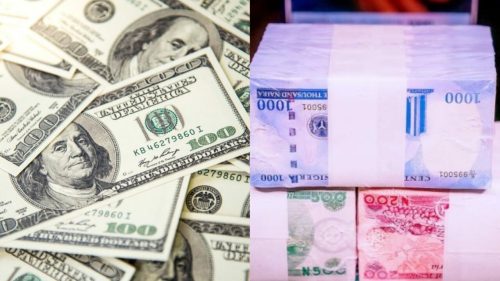
Black market dollar to naira exchange rate Thursday 16th May 2024 can be accessed below.
IMPORTANT NOTE: The exchange rate changes hourly.… it depends on the volume of dollars available and the Demands. It means that…you can buy or sell 1 dollar at a certain rate and the price can change (high or low) within hours.
JomogNews Nigeria has obtained the official naira black market exchange rate in Nigeria today including the Black Market rates, Bureau De Change (BDC), and CBN rates. Please note that the exchange rate is subject to hourly fluctuations influenced by the supply and demand of dollars in the market. As of now, you can purchase 1 dollar at a certain rate now, however, it’s important to keep in mind that the rate can shift (either upwards or downwards) within hours.
What is the dollar to naira exchange rate today?
The local currency (abokiFx) opened at ₦1,530 per $1 at the parallel market otherwise known as the black market, today, Thursday, 16th May 2024, in Lagos Nigeria, after it closed at ₦1,530.00 per $1 on Wednesday, 15th May 2024.
Dollar to Naira (USD to NGN) Black Market Exchange Rate Today
Buying Rate of $1 ₦1530
Selling Rate of $1 ₦1,550
How does the black market dollar-to-naira exchange rate compare to the official rate?
The official exchange rate of the US dollar to the Nigerian naira, as of today, 16th May 2024, is N1520.40 per US dollar.
This is the rate that the CBN uses for its transactions and interventions in the foreign exchange market. The official rate is also the basis for the exchange rates of other foreign currencies, such as the euro, the pound sterling, and the Chinese yuan.
The difference between the black market rate and the official rate is called the parallel market premium. The parallel market premium indicates the degree of divergence between the official and unofficial markets and reflects the level of confidence in the naira and the CBN’s policies.
Factors Influencing Foreign Exchange Rates
Here are some of the causes of the dwindling dollar-to-naira exchange rate.
Inflation Rates: It is well known that inflation directly impacts black market exchange rates. If the Nigerian economy can be stabilized and inflation is controlled, the naira will benefit; however, if the naira continues to fall, it may indicate that food and other necessities are becoming more expensive daily.
Interest Rates: Another tool to keep an eye on is interest rates. If the interest rate at which banks lend money rises, it would harm the economy, causing it to contract and, as a result, the value of the naira to fall.
Government Debt: National debt can impact investor confidence and, as a result, the influx of funds into the economy. If inflows are high, the naira exchange rate will rise in favour of the naira.
Speculators: Speculators frequently impact the naira-to-dollar exchange rate. They stockpile money in anticipation of a gain, causing the naira to plummet even lower.
Conditions of Trade: Favorable trade terms will increase the value of the naira to the dollar, although Nigeria is currently experiencing a trade deficit. Everything comes from China, India, and the majority of Asian countries.
Disclaimer: JOMOGNEWS NIGERIA does not set or determine forex rates. The official NAFEX rates are obtained from the website of the FMDQOTC. Parallel market rates (black market rates) are obtained from various sources including online media outlets. The rates you buy or sell forex may be different from what is captured in this article.
News
Abia: Trailer Crushes Many To Death At Police Checkpoint

No fewer than 18 travellers were feared dead in a crash on the Umuahia-Enugu axis of the Port Harcourt Enugu Highway on Thursday morning.
It was gathered that the accident occurred at a police checkpoint around the Lokpanta area of Abia State in the wee hours of today.
An 18-seater commercial bus was at the checkpoint awaiting police clearance when a truck driver lost control and rammed into them killing the driver and all the passengers.
Mr Bananas Okereke, an eyewitness, told our reporter on a telephone that the bodies of victims still littered the scene at 8:20 am.
He said: “The road is blocked by protesting bus drivers and other motorists who are asking that the policemen who caused the accident be brought back to the scene.”
“Colleagues of the bus driver and other road users have taken over the road, demanding Justice for the victims. They vowed to remain there until Governor Alex Otti visits the scene.”
Details shortly….
-

 News1 day ago
News1 day agoAutopsy Report Fails To Ascertain Cause Of Mohbad’s Death
-

 News2 days ago
News2 days agoNigerian Bags Life Jail In UK For Killing Wife
-

 News2 days ago
News2 days agoVeteran Actress, Liz Benson Returns To Nollywood, Mercy Johnson, Others Excited To Meet Her On set
-

 News21 hours ago
News21 hours agoTwo Women, Boy Killed In Abuja Riot
-
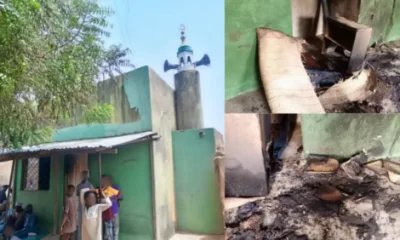
 News22 hours ago
News22 hours agoKano Mosque Attack Death Toll Rises To Eight
-

 News2 days ago
News2 days agoBreaking: Emefiele Pleads Not Guilty To Printing N684m Notes With N18.96bn
-
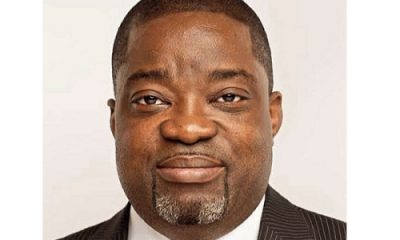
 News1 day ago
News1 day agoSanwo-Olu’s Deputy Chief Of Staff, Soyannwo Dies At 55
-

 Politics19 hours ago
Politics19 hours agoNigerian Politicians Only Steal Money To Share With People For Re-Election – Ndume

